Meal and Rest Break Laws | Lawyer for Unpaid Breaks
It is 1:00 PM. You are supposed to be on lunch, but you are still at your desk, answering emails. Or maybe your manager told you to clock out, but asked you to keep your radio on “just in case.” You might even see a 30-minute deduction on your paycheck for a break you never actually took.
This is a familiar story for millions of workers. You feel pressured to agree, but these practices are often illegal. Many employers violate meal break laws to squeeze more work out of their staff.
When an employer forces you into working through lunch or denies a required break, they are stealing your time. This guide will explain your rights, how to spot violations, and how a lawyer can help you get paid for all your work.
The Big Surprise: Federal Law vs. State Break Laws
Most people believe there is a federal law that requires a lunch break for every employee. This is the biggest misconception about workplace rights.
The Fair Labor Standards Act (FLSA), the primary federal wage law, does not require employers to provide meal periods or rest breaks for adult employees.
Federal law only steps in if your employer chooses to offer breaks. The FLSA’s rules determine whether those breaks must be paid or unpaid.
Your real protections come from state break laws. Many states, including California, New York, Washington, and Illinois, have passed their own laws that do mandate breaks. This is why your rights depend entirely on the state where you work.
When Are Breaks Considered "Hours Worked"?
Under federal law, the only question is: should you be paid for your break time? The answer depends on the type of break.
Paid Rest Breaks (5 to 20 Minutes)
If your employer offers short rest breaks, typically 20 minutes or less, they must be counted as paid work time. The Department of Labor considers these short breaks beneficial to the employer because they promote efficiency.
An employer cannot ask you to clock out for a 10-minute coffee break. If your state mandates these breaks and your employer refuses to provide them, you have a denied rest break claim.
Unpaid Meal Breaks (30 Minutes or More)
This is the area where most wage theft happens. An employer is allowed to offer an unpaid lunch break, which is usually 30 minutes or longer.
But to be legally unpaid, the break must be a bona fide meal period. This is legal language for “genuine” or “real.” To be a real, unpaid break, one condition is absolute: You must be completely relieved of all work duties.
What "Completely Relieved of Duties" Really Means
This is the most important concept in meal break laws. It is not a real break if you are still tied to your job in any way.
You are not relieved of your duties if you are:
- Eating at your desk while answering work emails or phone calls.
- Required to be on-call during break in case a customer or patient needs you.
- A security guard who must watch monitors while eating.
- A truck driver who is required to stay with the vehicle for security.
- The only employee in a small shop who cannot lock the door and leave.
- Asked to finish “one quick thing” after you have clocked out.
If your employer places any work requirement on you, that time is not a real break. Answering one email, taking one work call, or helping one customer means that “unpaid” break must be paid. If your employer fails to pay you, they are violating the law.
Common Meal Break Law Violations We Investigate
When employees contact us, their stories are often identical. Wage theft involving breaks is usually a company policy, not a random mistake.
Automatic 30-Minute Deductions
This is the most common form of “passive” wage theft. The company’s payroll software is programmed to automatically deduct 30 or 60 minutes from your shift every day.
This system assumes you get a break every day. But what happens when the restaurant is short-staffed, you have a project deadline, or you are simply too busy? You skip your break to help the company.
The payroll system does not know you worked. It subtracts that time anyway. Your employer just stole 30 minutes of your wages. This is illegal. Your employer is required to pay you for all hours worked, and an automatic deduction system that does not reflect your actual time is a violation.
Working While Clocked Out
This is a more direct form of theft. Your manager tells you to clock out for your meal period. Then, they come to you with a “quick question” or ask you to finish prepping a workstation.
Because you are off the clock, those 10, 15, or 30 minutes of working through lunch is unpaid. Many employees agree because they fear being disciplined. This is a direct violation of the FLSA.
On-Call Breaks
This policy makes your break a fake. If you are not free to leave the premises, you are not on a real break. If you must keep a radio or phone on “just in case,” you are still “engaged to wait.” That time is work time.
An on-call during break policy means your employer is controlling your time. If they control your time, they must pay for it.
Denied Rest Breaks
In states with mandatory rest periods (like California, Colorado, and Washington), your employer must provide them. A denied rest break is a clear legal violation. These states often have specific penalties. For example, in California, your employer owes you one extra hour of pay for each day a required break was not provided.
State Meal Break Laws: Where Your Rights Are Strongest
As we covered, federal law is weak on breaks. Your power comes from state break laws. Dozens of states have rules requiring employers to provide breaks, and these laws are often much stronger than the FLSA.
The rules vary, so it is vital to know the laws where you work.
Here are a few examples:
- California: California meal break laws are the most protective.
- Meal Break: 30-minute unpaid meal break for shifts over 5 hours.
- Rest Break: 10-minute paid rest break for every 4 hours worked.
- Penalty: 1 hour of pay for each day a meal or rest break is not provided.
- New York: New York law is specific to the type of work.
- Meal Break: Factory workers get a 60-minute lunch. Office workers get a 30-minute lunch for shifts over 6 hours.
- Rest Break: New York does not have a state law requiring short rest breaks.
- Washington:
- Meal Break: 30-minute meal break for shifts over 5 hours.
- Rest Break: 10-minute paid rest break for every 4 hours worked.
- Illinois:
- Meal Break: A 20-minute meal break for any shift of 7.5 continuous hours. The break must be given no later than 5 hours into the shift.
- Colorado:
- Meal Break: 30-minute unpaid meal break for shifts over 5 hours.
- Rest Break: 10-minute paid rest break for every 4 hours worked.
- Massachusetts:
Meal Break: 30-minute meal break for shifts over 6 hours. This break can be unpaid.
How We Help You Recover Your Stolen Wages
If you are consistently denied breaks or forced to work through lunch, you are losing money every day. An experienced employment lawyer is your best ally to get it back.
You Are Protected from Retaliation
The number one reason employees stay quiet is fear. You are afraid you will be fired, have your hours cut, or be given the worst shifts.
The law protects you. It is illegal for your employer to retaliate against you in any way for filing a wage claim or complaining about illegal break policies. If they do, we can file a separate lawsuit for wrongful retaliation, which often results in significant damages.
Our Process for Getting Your Money
- Free & Confidential Case Review: You tell us your story. We will ask about your job, your hours, and your company’s break policies. This consultation is 100% confidential. Your employer will not know you spoke to us.
- We Analyze Your Records: We will look for evidence of violations. This includes your pay stubs, employee handbooks, text messages, and emails. We look for patterns of automatic deductions or complaints about missed breaks.
- We Calculate Your Full Damages: We will calculate all the unpaid time. This adds up fast. Under the FLSA, you are often entitled to double your unpaid wages. This is called “liquidated damages.” We also add any specific penalties your state law provides.
- We File the Claim & Fight for You: We handle all the complex legal paperwork. We will file a claim against your employer with the Department of Labor or in court. We manage the entire process, so you can focus on your life.
You Earned That Time. Get Paid for It.
Your breaks are not a favor. They are a right. If your employer is stealing your time, you have the power to get it back.
Do not wait. You only have a limited time to file a claim for unpaid wages.
Contact us today for a 100% free and confidential consultation. Tell us what is happening at your job, and we will explain your options.
Call us at (615) 242-0434 or fill out our online form to get your free case review.
Why Choose Us
Recovered
Cases Won
Lawsuits
Lawyers

